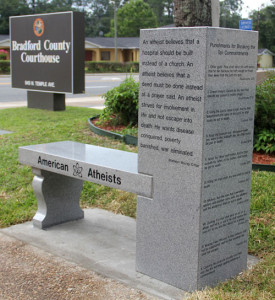During a stop at Roosevelt Roads Naval Station in Puerto Rico I was assigned shore duty. The night before the ship was to get underway I went to the sailor center on base to tell my shipmates to head back to the ship. One sailor was missing, however. This sailor’s alcohol issues had caused trouble for me in the past. During a stay at my home he damaged the interior walls and during a drunken fit he kicked a hole in an acoustic guitar that I had let another sailor borrow. Based on this, I guessed alcohol was involved his disappearance. Sure enough, I found him semi-conscious in a bathroom stall. He had vomited and urinated on himself and the smells of bile and urine combined with the smell of alcohol to make a terrible odor.
I tried to walk him the 3/4 of a mile or so back to the ship, but quickly realized I’d have to hoist him, putting one arm over my shoulder and one hand on his belt. During the long trip back to the ship he would occasionally gain enough lucidity to curse at me for a few moments before lapsing back into a semi-conscious state. When I finally got him to the ship and the BMC took him down to his bunk, I was happy to be rid of him.
Do you not know that as many of us as were baptized into Christ Jesus were baptized into His death? Knowing this, that our old man was crucified with Him, that the body of sin might be done away with, that we should no longer be slaves of sin. For he who has died has been freed from sin. Romans 6:3, 6-7
When I carried this sailor back to the ship, I saved him from the wrath of the chain of command. I didn’t bear his punishment for him, I merely moved him from a position of danger to one of relative safety. When I finished, I didn’t want to see him again. I liked him less then than I ever had before. All I wanted to do was change clothes and take a shower. But when Christ died on the cross, he satisfied the just requirements of the holiness of God toward the sins of the world – every sin – past, present, and future.1 Understand this: The sin of mankind is far more horrendous and obnoxious to God than any physical filthiness that has ever existed on human skin. Jesus Christ was not merely exposed to this sin, he became our sin.2 God the Father was required by his very nature to smite his Son with all the wrath that mankind has ever deserved. This is why we who believe are free from sin: Christ died for us. When we identify with him, we receive the benefits of the crucifixion – The removal of “the body of sin.” We are dead to it.
Now that’s a good deal in itself, far better than we ever could have hoped for. But it gets better.
Therefore we were buried with Him through baptism into death, that just as Christ was raised from the dead by the glory of the Father, even so we also should walk in newness of life. For if we have been united together in the likeness of His death, certainly we also shall be in the likeness of His resurrection. Now if we died with Christ, we believe that we shall also live with Him. Romans 6:4-5,8
The sacrificial death of Christ freed us from the power of sin. Even better, he was resurrected by the Glory of God to new life. Again, in identifying with him, we also receive new life. I never wanted to see that drunken sailor again and even after he was sober and clean smelling I avoided him as much as possible. God the Son does the opposite. He pursues us, he woos us, he wants us to live with him. Not only that, he compares our relationship to a marriage relationship3 – the most intimate relationship mankind can boast of, a relationship which functions on the closest thing to unconditional love humans can muster. He didn’t just save us from sin, he brought us into his family – to be treated as a bride, a kinsman, as sons and daughters.
I’m glad that God’s ways aren’t my ways, and his thoughts aren’t my thoughts. I’m glad that Jesus Christ, God the Son, wants me to be identified with him. I’m glad that when God the Father looks at me, he sees Jesus Christ, his Son. In him I have died to sin, and in him I live a resurrected life.
- 1 John 2:2 – And he himself is the propitiation [satisfying sacrifice] for our sins, and not for ours only but also for the whole world. [↩]
- 2 Corinthians 5:21 – For He made Him who knew no sin to be sin for us, that we might become the righteousness of God in Him. [↩]
- Romans 7:4 – Therefore, my brethren, you also have become dead to the law through the body of Christ, that you may be married to another—to Him who was raised from the dead… [↩]



 The description read, in English and French, “Lozenges / Pastilles.” Now I’ve always associated lozenges with semi-opaque hard candy, like cough drops, so I was surprised to find fast dissolving tablets in the package. This made me curious about the definition of lozenge, so I looked the word up.
The description read, in English and French, “Lozenges / Pastilles.” Now I’ve always associated lozenges with semi-opaque hard candy, like cough drops, so I was surprised to find fast dissolving tablets in the package. This made me curious about the definition of lozenge, so I looked the word up.